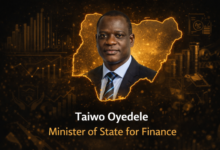Electricity tariff hike ‘ll inflict more pain, Nigerians cry out
 Stakeholders in the electricity sector have said that the proposed hike in electricity tariff will inflict more pain and hardship on Nigerians who are already feeling the heat of petrol subsidy removal.
Stakeholders in the electricity sector have said that the proposed hike in electricity tariff will inflict more pain and hardship on Nigerians who are already feeling the heat of petrol subsidy removal.
They stated this in separate interviews with the News Agency of Nigeria (NAN) on Monday in Ibadan.
The Principal Partner, Utilities Consumers’ Rights Advocacy Initiative, Mr Shadrack Akinbodunse, said that there had never been corresponding performances from distribution companies (discos) to justify every new tariff regime.
Akinbodunse noted that power supply had been getting worse since the privatisation of the sector due to what he called poor planning for expansion and failure to make timely provisions for obsolete equipment.
According to him, mass meter deployment, as promised by the discos during privatisation, had also become a mirage, while old and obsolete meters were not replaced, in disregard to an order by Nigerian Electricity Regulatory Commission (NERC).
“It’s a known fact that the Multi-Year Tariff Order (MYTO) pricing framework is essential to the survival of discos but it also goes with their corresponding performances to justify every tariff regime.
“Till date, there has never been any tariff regime justified with measurable performances by discos, yet they keep increasing tariffs.
“This is unfair and an open injustice to electricity customers across the country. The discos should justify their present tariff and stop shortchanging Nigerians,” he said.
Akinbodunse also claimed that there had been age-long open cheating and extortion by electricity workers, especially any time power equipment developed a fault in any community.
“Most times, they tell customers that there is no provision for repair or replacement of faulty power equipment in their stores.
“Most community development associations (CDAs) have now become a conduit pipe to milk people through power supply fault and activation of new installations.
“In view of the above, we strongly condemn electricity tariff hike in any form,” he said.
Also speaking, the Director-General, Manufacturers’ Association of Nigeria (MAN), Mr Segun Ajayi-Kadir, said that a higher electricity tariff would directly increase the cost of production for manufacturers.
“Already, we have power constituting between 28 and 40 percent in the cost structure of the manufacturing industry.
“So the impacts of the new tariff hike on the manufacturing industry will be intensive, particularly on metal processing, heavy machinery and chemicals manufacturing.
“A spike in electricity tariff will also erode the profit margin of the manufacturers and reduce their ability to expand operations and create new jobs.
“There is a high probability of the activities of small and medium-scale enterprises (SMEs) being paralysed with the proposed hike in tarrif.
“There may also be a decrease in the revenue collectible by government, while manufacturers will ultimately pass the additional cost to the consumers of their products,” he said.
Ajayi-Kadir called on the Federal Government and NERC to ensure improvement in electricity generation, transmission and distribution.
This, he said, would lead to regular electricity supply in the country, rather than increasing the tariff on the present 4000MW which was grossly inadequate.
“Government should also ensure that at least 90 percent of electricity consumers are metered to ensure consumption- reflective electricity bill payment.
Also, Mr Kehinde Aina, a consumer, said that it was improper to effect any hike in electricity tariff when an average Nigerian was still grappling with the hardship caused by removal of petrol subsidy.
BRANDPOWER recalls that NERC, through a recent public notice, said the request for rate review was premised on the need to incorporate changes in macroeconomic parameters and other factors affecting quality service, operations and sustainability of the companies.
NERC had stated in the notice that Discos’ request for rate review was in pursuant to Section 116(1) and 2(a and b) of the Electricity Act 2023 and other extant rules.
Consequently, the commission had invited the general public for comments on the rate review applications by the distribution licensees.










